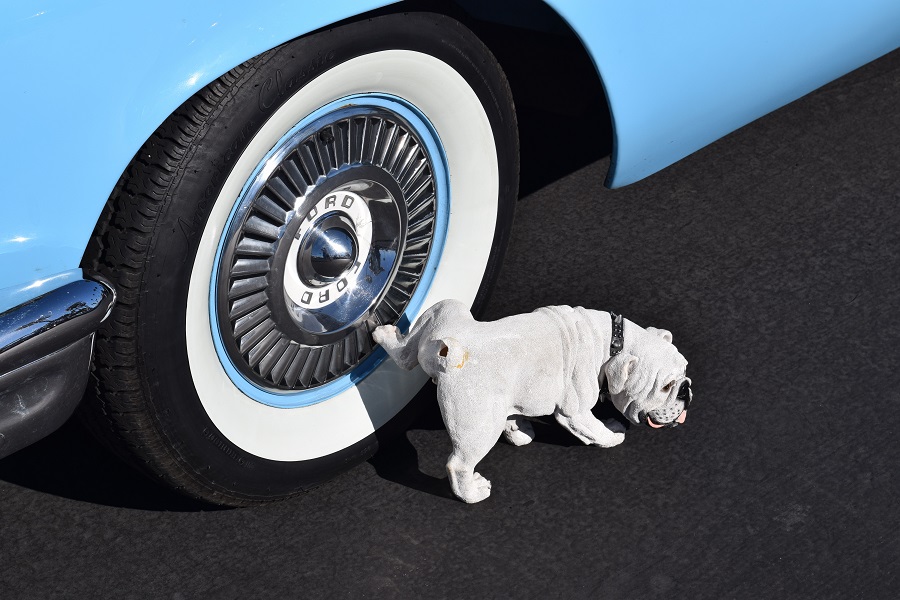Puppy Behavior Problems
Ah puppies! They are cute, adorable and loving. Everything they do is delightful when they are little. But all puppies grow up and then that cute puppy behavior is not so cute. Puppy behavior problems can be tiresome. It’s best to start when they’re young and teach them the preferred behavior otherwise your adult dog will be a handful. There are a number of behaviors that should be banished before they get out of hand, including:
Playbiting or teething:
Puppies love to play and just like babies everything goes in their mouths, including your toes or fingers. When they have small little puppy teeth it’s not so bad. When your puppy is playing and bites he is only being curious and playing, there is no need to react with violence. In fact, if you grab the puppy roughly he may think you’re only playing too. When puppies play and one bites the other too hard, the victim may yelp and stop playing or they may yelp and bite back. This is a hard learned lesson that teaches the puppy if he bites too hard, the game is over. You can do the same thing, without biting back. When your puppy bites simply yelp and withdraw, step back and ignore him for 30 seconds or so. If he stops biting, reward the good behavior with a treat.
It can often seem fun to roughhouse with a puppy and allow the nipping, but if you want him to stop you need to show some restraint. Don’t reward him for nipping, but do reward him for not nipping with treats or a toy. It’s important to encourage the positive behaviors you seek to avoid Puppy Behavior Problems.
Related content
How to deal with Puppy Behavior Problems
Dogs Communication: How to Understand Dog Talk
Yipping and whining:
Most puppies are testing out their pipes. There could be other reasons as well like; anxiety, boredom, simply being playful or excited, wanting attention or warning or responding to other animals. Learning to control excessive yipping and whining takes patience and consistency. Taking time to teach your puppy to speak on command can be fun and useful. There are a variety of dog trainers that can guide you with this task. Allow time daily to reinforce the good behavior.
Jumping up on people:
Jumping up is a behavior that is often overlooked when puppies are first brought home since they are usually so small it is not a problem. Puppies show their enthusiasm when greeting anyone with jumping, wagging his tail and the like. It can be so adorable in a young puppy it may even be inadvertently encouraged. When that puppy is older and larger, however, this jumping up ceases to be cute and begins to become annoying and can even dangerous.
A large dog jumping up on people can be dangerous, since a large, 100 pound plus dog can easily knock down a child or small adult. The best time address jumping is when the puppy is still small and easy to handle. When the puppy jumps up on you or someone else, the best method is to simply turn away and ignore the puppy. Do not make eye contact, speak or even touch your puppy. Before you know it your puppy will understand jumping up is not acceptable behavior and you can then praise his good behavior.
When teaching the puppy to not jump up, it is important to be patient and consistent. Consistency is important in any training program, and all members of the family should understand that the puppy is not permitted to jump on them.
Begging:
One problem you definitely want to nip in the bud is begging. It is important that the puppy learn to respect your meal time. Your meal time is not his meal time. There is a time and a place for your puppy’s breakfast or dinner and it is not eating from your plate. Sometimes, it is so hard to resist those pleading big often brown eyes but it is best to resist. Puppies beg because they love food, just like you, but table scraps can result in digestive problems or obesity. Before you sit down to eat, establish a routine, a place where your puppy should go, preferably where he will not be able to stare at you. Once he behave give him an approved treat for good behavior.
Dog seem to form strong emotional bonds the same way mothers bond with their child. Have you ever went somewhere only to return a short while later, and your dog greeted you with such joy it’s as if you were gone for weeks?
Beginning with a solid foundation of training will help to stop puppy behavior problems from becoming a big problem and you’ll form a strong bond with your puppy and a lifelong positive relationship.
Thanks for reading this article, I appreciate it.
Debi & Chewie
Feel free to ask questions or provide comments. If you got value feel free to share this article with your friends or team.
Do you love animals too?
PS. Behavior Training For Dogs – Develop your Dogs “Hidden Intelligence”
Have A Well Behaved Dog: Dog Training System
.
.
.THIS POST MAY CONTAIN AFFILIATE LINKS. PLEASE READ MY EARNINGS DISCLOSURE FOR MORE INFO.
.






